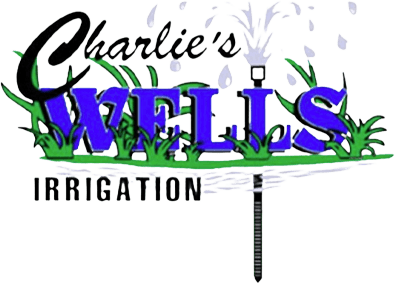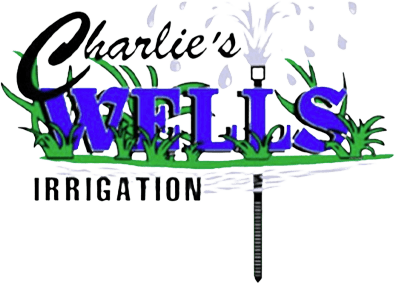Inspecting for Leaks and Damage
Before the summer heat sets in, it's crucial to give your irrigation system a thorough once-over to check for any leaks or damage. Leaks in pipes or cracks in sprinkler heads can lead to significant water wastage, not to mention the potential for increased water bills. Take a walk around your property, inspecting each component of your system closely. Look for wet spots on the ground or areas where the grass seems greener than the rest, as these can be telltale signs of leaks. Addressing these issues early on will not only save water but also ensure your system operates efficiently throughout the summer months, keeping your landscape lush and green.
Evaluating Water Pressure and Flow
Another key aspect of assessing your irrigation system is evaluating the water pressure and flow. Inconsistent water pressure can lead to uneven watering, which can negatively impact the health of your plants. Too much pressure might cause sprinkler heads to mist, leading to water loss through evaporation, while too little pressure might not reach all areas of your garden effectively. Use a pressure gauge to measure the water pressure at various points in your system. Adjust the settings as needed to ensure that your system delivers water evenly across your landscape. This step is vital to maintaining a healthy garden and avoiding dry patches or overwatered areas.
Testing Electrical Components and Timers
Your irrigation system's electrical components, including timers and controllers, are the brains behind the operation. Ensuring these are functioning correctly is key to efficient watering. Check that all connections are secure and that there are no signs of wear or corrosion. Test the timers to confirm they are set to water at optimal times, such as early morning or late evening, when evaporation rates are lower. Properly functioning timers not only conserve water but also help your plants receive the hydration they need without waste. If any components seem faulty, consider replacing them before the summer season is in full swing.
Clearing Clogged Sprinkler Heads and Nozzles
Over time, sprinkler heads and nozzles can become clogged with debris or mineral buildup, disrupting the even distribution of water. This can lead to dry spots in your lawn or garden, or conversely, areas that are overwatered. Regularly cleaning these components is essential to maintaining a healthy landscape. Remove each sprinkler head and inspect it for blockages. Use a small brush or a toothpick to clear any debris, ensuring that water can flow freely. This simple maintenance task can significantly improve the efficiency of your irrigation system and ensure that every part of your garden receives the water it needs.
Flushing Pipes and Lines
Flushing your irrigation system's pipes and lines is another important maintenance step to consider. Sediment and buildup can accumulate over time, potentially causing blockages that impede water flow. To flush the system, open the end caps or valves and allow water to run through until it flows clear. This process helps remove any obstructions and ensures that your system operates smoothly throughout the summer. Regular flushing not only maintains the efficiency of your irrigation system but also extends its lifespan by preventing damage caused by blockages.
Lubricating Moving Parts
To keep your irrigation system running smoothly, it's important to regularly lubricate moving parts such as valves and rotors. These components are subject to wear and tear, and without proper maintenance, they can become stiff or even seize up. Apply a suitable lubricant to these parts to reduce friction and prevent damage. Regular lubrication not only extends the lifespan of these components but also ensures that your system operates efficiently, delivering water where and when it's needed most. This simple maintenance task can save you from costly repairs and keep your landscape looking its best.
Programming Seasonal Watering Schedules
As summer approaches, it's essential to adjust your irrigation system's watering schedule to accommodate the changing conditions. During hot, dry periods, your plants may require more frequent watering. However, it's important to balance this with local water restrictions to conserve resources. Programming your system to water during the cooler parts of the day, such as early morning or late evening, can help reduce evaporation and ensure that your plants receive the moisture they need. By thoughtfully adjusting your watering schedule, you can support plant health while also being mindful of water conservation.
Modifying Sprinkler Head Angles and Coverage
With the changing seasons, it's a good idea to review the positioning of your sprinkler heads to ensure optimal coverage. Adjust the angles to prevent overspray onto hardscapes or non-landscaped areas, which can lead to water wastage. Consider the specific needs of your garden or lawn during the summer months and modify the coverage accordingly. This might involve repositioning sprinkler heads or changing the spray patterns to better suit the layout of your landscape. By fine-tuning these settings, you can ensure that every part of your garden receives the right amount of water, promoting healthy growth and minimizing waste.
Incorporating Smart Irrigation Technology
Incorporating smart irrigation technology into your system can significantly enhance its efficiency and reduce water usage. Consider upgrading to smart controllers that adjust watering schedules based on weather forecasts and soil moisture levels. These advanced technologies take the guesswork out of irrigation, ensuring that your plants receive the right amount of water at the right time. By leveraging real-time data, smart irrigation systems can help you conserve water, reduce utility bills, and maintain a healthy landscape. Investing in these technologies is a smart move for any homeowner looking to optimize their irrigation system for summer conditions.
Implementing Drip Irrigation for Targeted Watering
Drip irrigation systems are an excellent option for areas of your garden that require precise watering, such as flower beds or vegetable gardens. Unlike traditional sprinkler systems, drip irrigation delivers water directly to the root zone, minimizing evaporation and ensuring that plants receive the moisture they need. By implementing drip irrigation, you can target specific areas of your landscape, reducing water usage and promoting healthy plant growth. This efficient watering method is particularly beneficial during the summer months when water conservation is a priority.
Utilizing Rain Sensors and Soil Moisture Sensors
To further enhance the efficiency of your irrigation system, consider installing rain sensors and soil moisture sensors. These devices automatically adjust watering schedules based on real-time conditions, preventing unnecessary watering during rain events and optimizing moisture levels. Rain sensors detect precipitation and temporarily halt irrigation, while soil moisture sensors measure the moisture content in the soil and adjust watering accordingly. By utilizing these technologies, you can ensure that your landscape receives the right amount of water, conserving resources and promoting sustainable gardening practices.
Exploring Eco-Friendly Water Sources
Exploring alternative water sources can also contribute to the sustainability of your irrigation system. Consider implementing rainwater harvesting or greywater systems to supplement your irrigation needs. Rainwater harvesting involves collecting and storing rainwater for later use, while greywater systems recycle water from household activities such as washing dishes or laundry. These eco-friendly practices reduce reliance on municipal water supplies and promote sustainable water management. By incorporating alternative water sources into your irrigation system, you can reduce your environmental impact and contribute to a more sustainable future.
Preventing System Overload During Peak Usage
During the summer months, your irrigation system may experience increased demand, which can lead to system overload if not properly managed. Regular checks and maintenance are essential to ensure that your system can handle peak usage without breaking down. Inspect all components for signs of wear and tear, and address any issues promptly to prevent costly repairs. By staying on top of maintenance tasks, you can ensure that your system operates efficiently and consistently, even during the busiest times of the year.
Addressing Pest and Disease Risks
Summer can also bring an increased risk of pests and diseases that may affect your irrigation system or plants. Regularly monitor your garden for signs of infestations or disease, and take preventative measures to protect your landscape. Implement pest barriers or use natural repellents to deter unwanted visitors, and address any issues promptly to prevent them from spreading. By staying vigilant and proactive, you can protect your garden and ensure that your irrigation system continues to operate smoothly.
Planning for Drought Conditions
In some areas, summer may also bring the threat of drought conditions, which can pose challenges for maintaining a healthy landscape. Developing a drought contingency plan is essential to manage water usage during periods of scarcity. Prioritize essential areas of your garden and adjust watering practices to conserve resources while maintaining plant health. Consider implementing water-saving technologies such as drip irrigation or smart controllers to optimize water usage. By planning ahead and being mindful of water conservation, you can navigate drought conditions and keep your landscape thriving.
For Your Summer Irrigation Needs, Turn to Charlie's Wells Irrigation
At Charlie's Wells Irrigation, we understand the importance of maintaining a healthy and efficient irrigation system, especially during the summer months. Our team of experts offer a range of services to help you assess, maintain, and optimize your system for peak performance. Whether you need assistance with inspections, cleaning, or upgrading to smart technology, we have the knowledge and experience to meet your needs. Contact us today to schedule a consultation and ensure your landscape remains lush and vibrant all summer long.
Charlie's Wells Irrigation is available by phone at (727) 610-6737 or you can always send us a message online.


